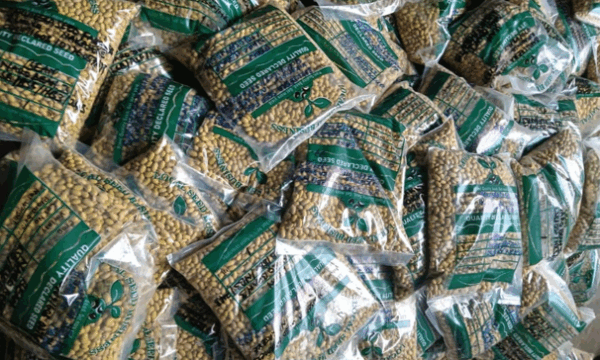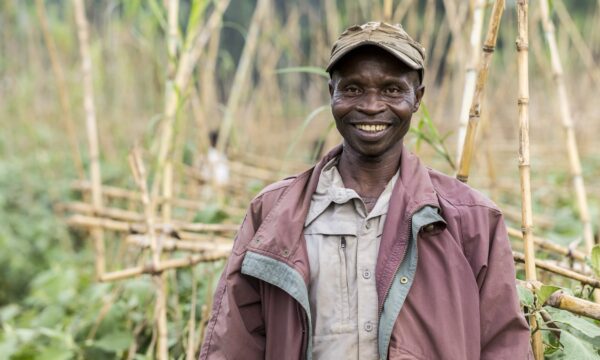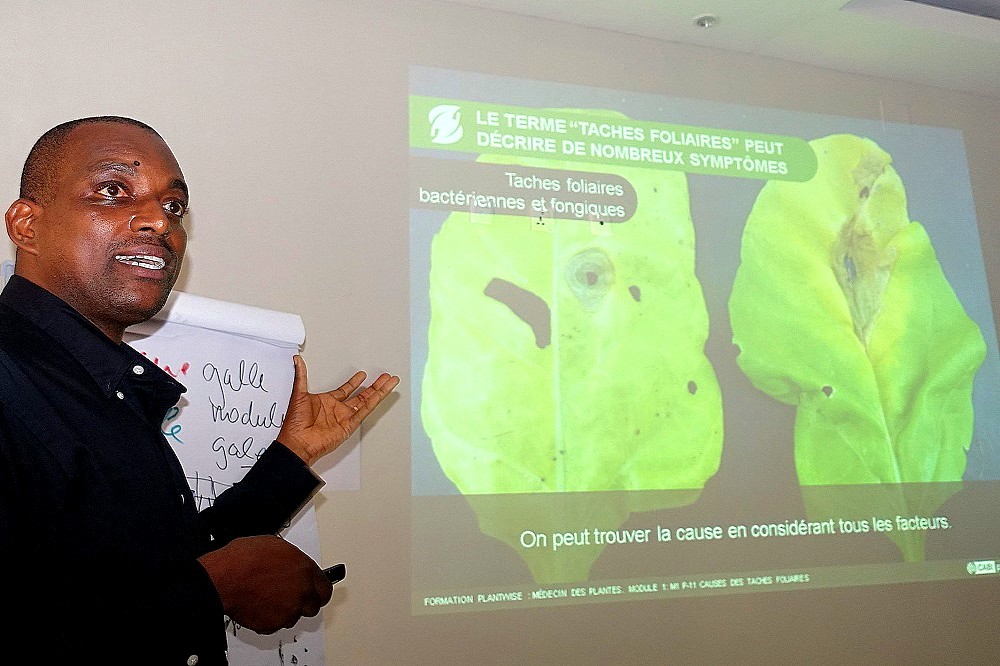
Plantwise training materials, given to extension workers so they can help smallholder farmers lose less of their crop to pests and diseases, are now available in 11 languages – writes Dr Stefan Toepfer, Research Scientist Arthropod Biological Control; Integrated Crop Management Advisor at CABI.
The aim of Plantwise is to increase food security and to improve rural livelihoods by reducing crop losses. This is achieved by establishing sustainable networks of local plant clinics, run by trained plant doctors, where farmers receive practical plant health advice.
In order to maximise global outreach, and local impact, trainings in local languages are essential. Computer translation is possible, but unreliable with technical terms and the local phrases of a country. Therefore, CABI is promoting translations of training materials together with local plant protection and educational experts.
More languages available
The training which features field diagnosis and management advice, is now available in English, Spanish, Portuguese, French, Chinese, Dari, Khmer, Vietnamese, Uzbek, Kirundi and Arabic.
The recent addition of Arabic is a huge step forward broadening the audience of the Plantwise training materials. It also helps other international development initiatives and projects such as ‘Strengthening the potato value chain in the Kurdistan Region of Iraq.’
It has been shown that better diagnosis of plant health problems leads to better pest management advice and, subsequently, better pest management on a farm. This improves crop production and rural livelihoods and reduces risks to farmers, consumers and the environment.
Core training
The core training needed to become a Plantwise plant doctor are Module 1 on field diagnosis and plant clinic operations and Module 2 on providing good management advice to farmers. They are aimed at reinforcing and strengthening the existing skills of agricultural extensions workers.
Local capacity is also enhanced through training on writing and delivering extension messages – such as pest management decision guides or plant health rallies. Training on use of data, quality assurance and gender are also provided.
Whilst the training focusses on the general principles there is also specific training when invasive species are concerned such as diagnosis and management of invasive pests such as the fall armyworm.
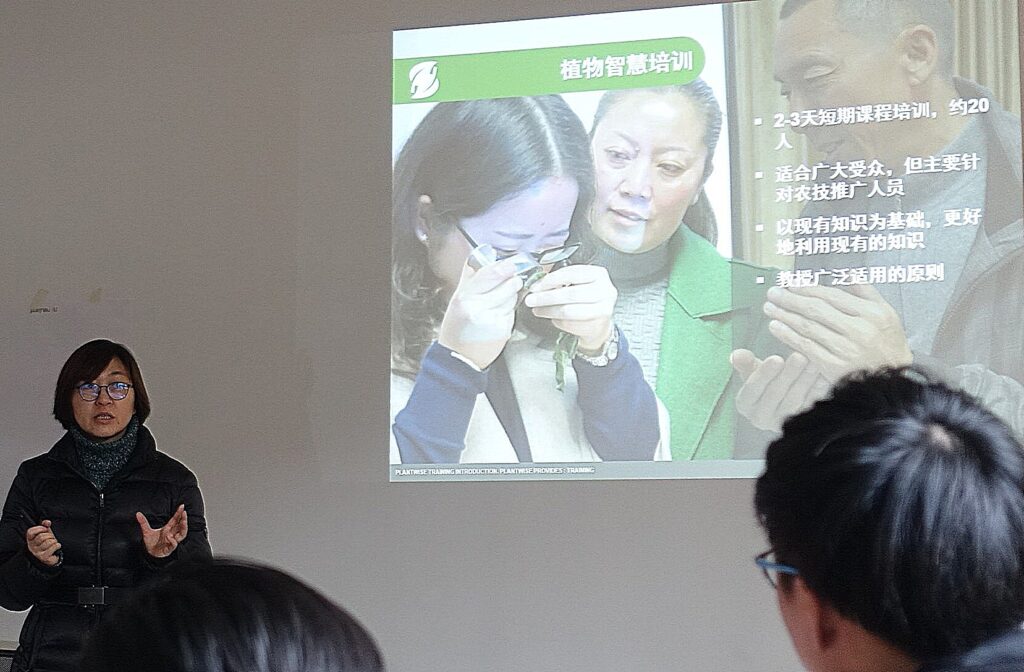
Since its launch in 2011, Plantwise has worked in 35 countries in Africa, Asia and the Americas.
Success and impact
Dr Stefan Toepfer, one of CABI’s master trainers, said “Although trainings of national trainers by CABI experts can usually be implemented in English, those national trainers can often only train a larger number of local trainers and subsequently many plant doctors in local languages. Thus, the use of local languages is essential to assure success, as well as the upscaling of success and impact.”
Ultimately, Plantwise is strengthening national plant health systems from within, enabling countries to provide farmers with the knowledge they need to increase their yields.
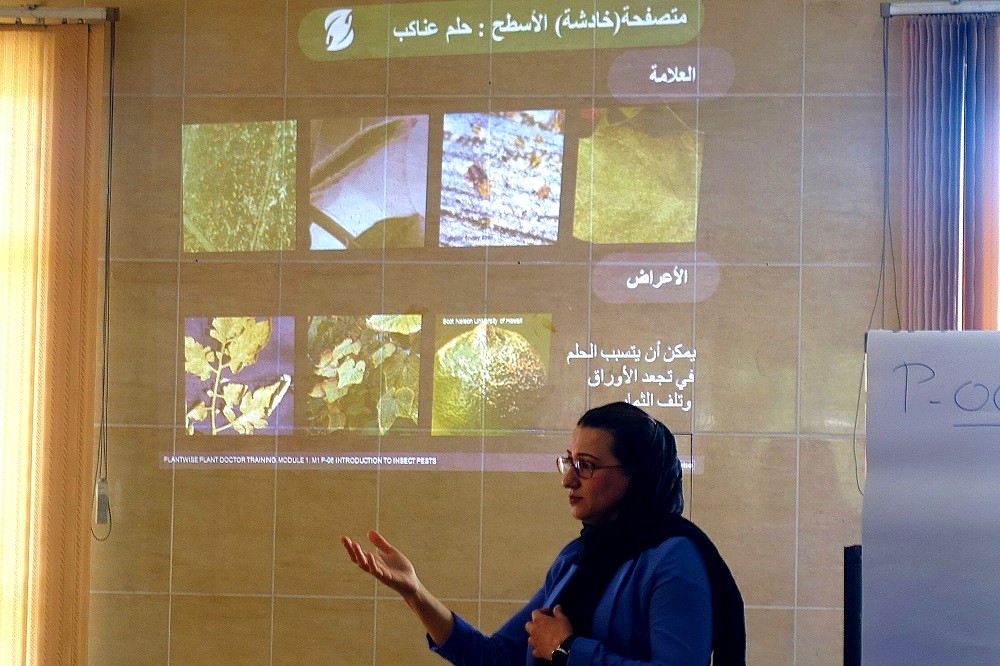
Additional information
Main image: A Plantwise trainer delivers training on pest diagnosis to local extension workers of Burundi in Kirundi and French (Photo: S. Toepfer).
Find out more about the Plantwise programme at www.plantwise.org
See other relevant articles from the Plantwise Blog.
Relevant books
Related News & Blogs
How does crop rotation help keep pest populations in control?
Crop rotation is a simple, effective way to manage pests, improve soil health, and boost yields. Suitable for all growers, crop rotation supports sustainable agriculture and reduces the need for chemical inputs. By targeting pest lifecycles and reducin…
6 June 2025

